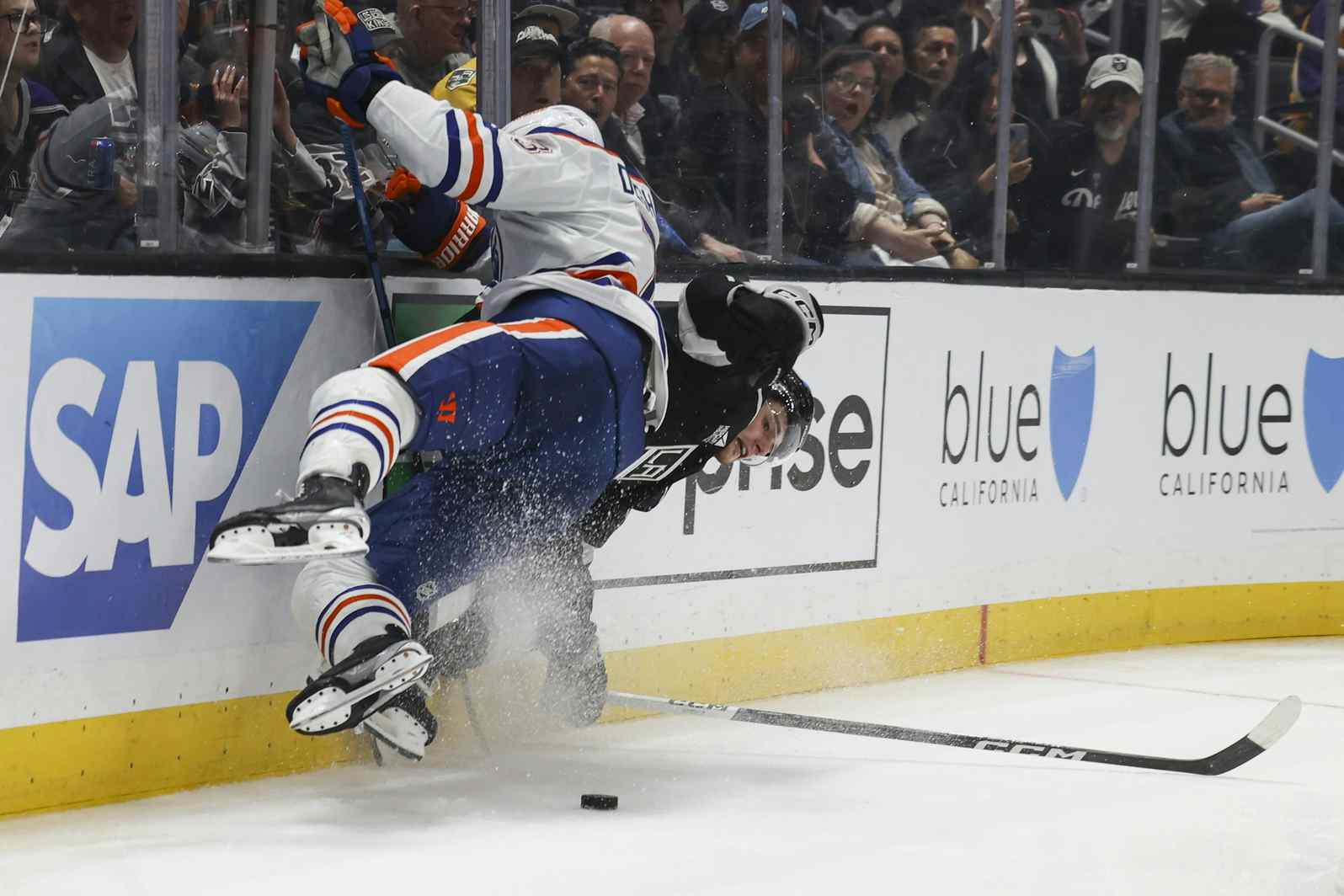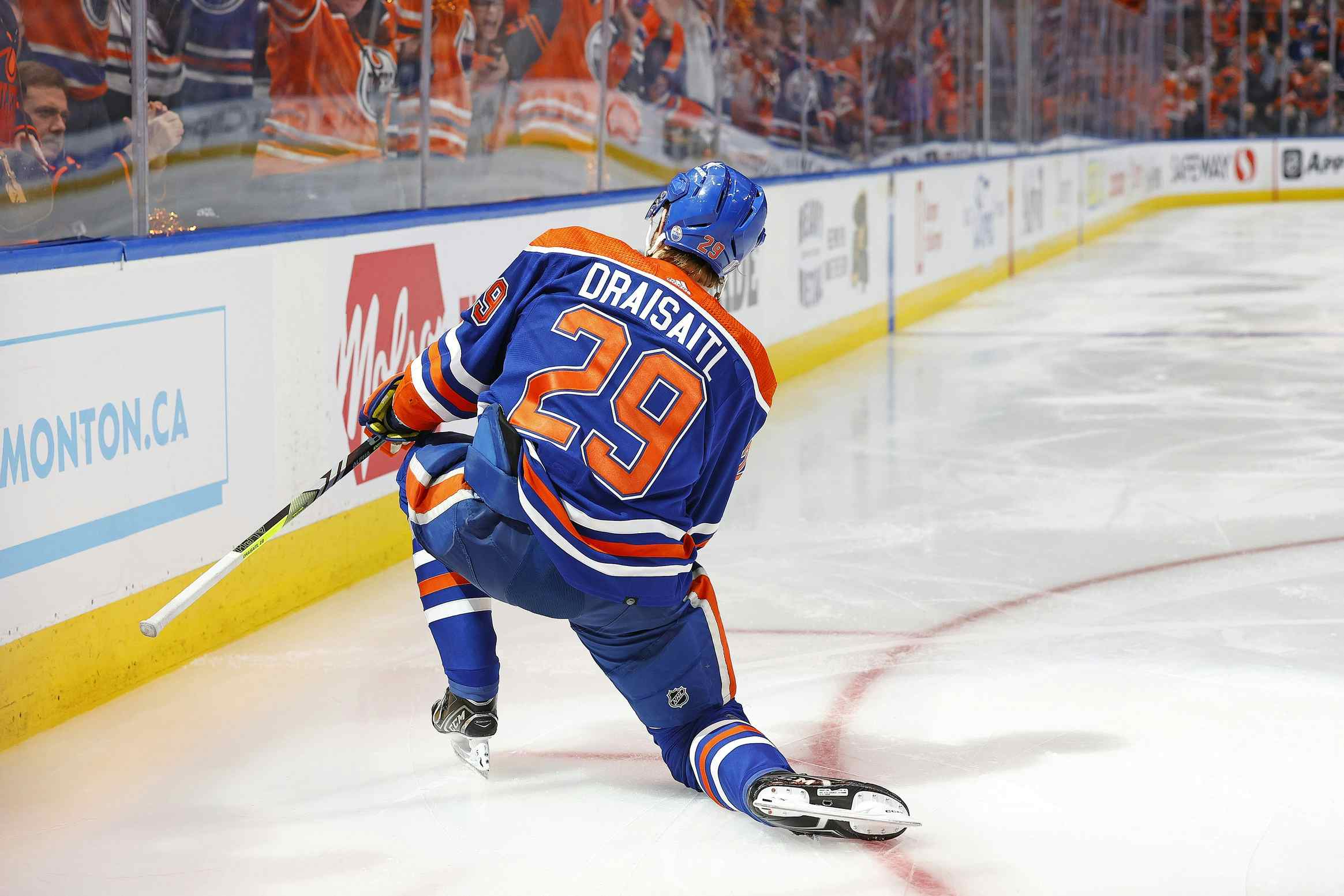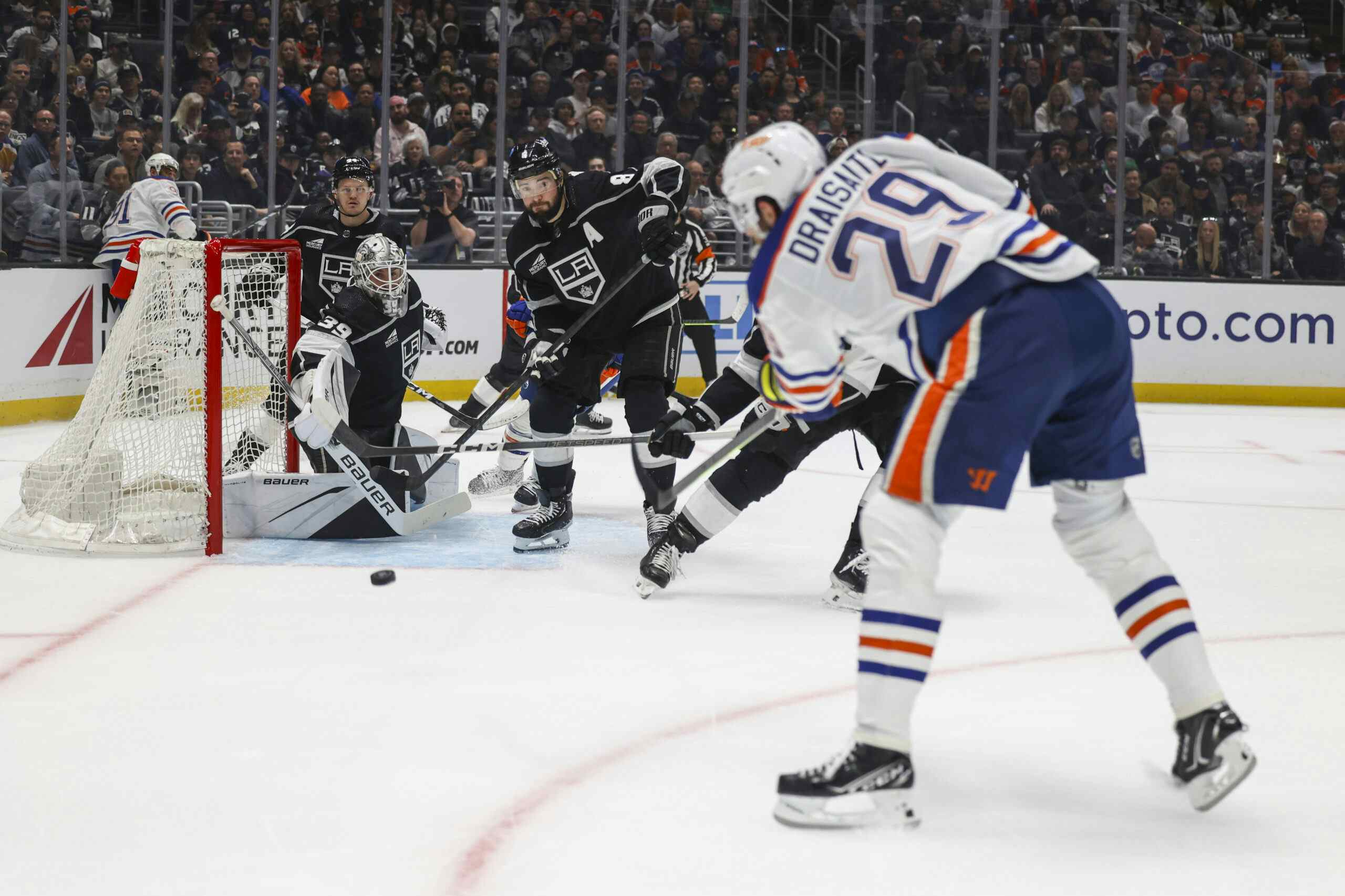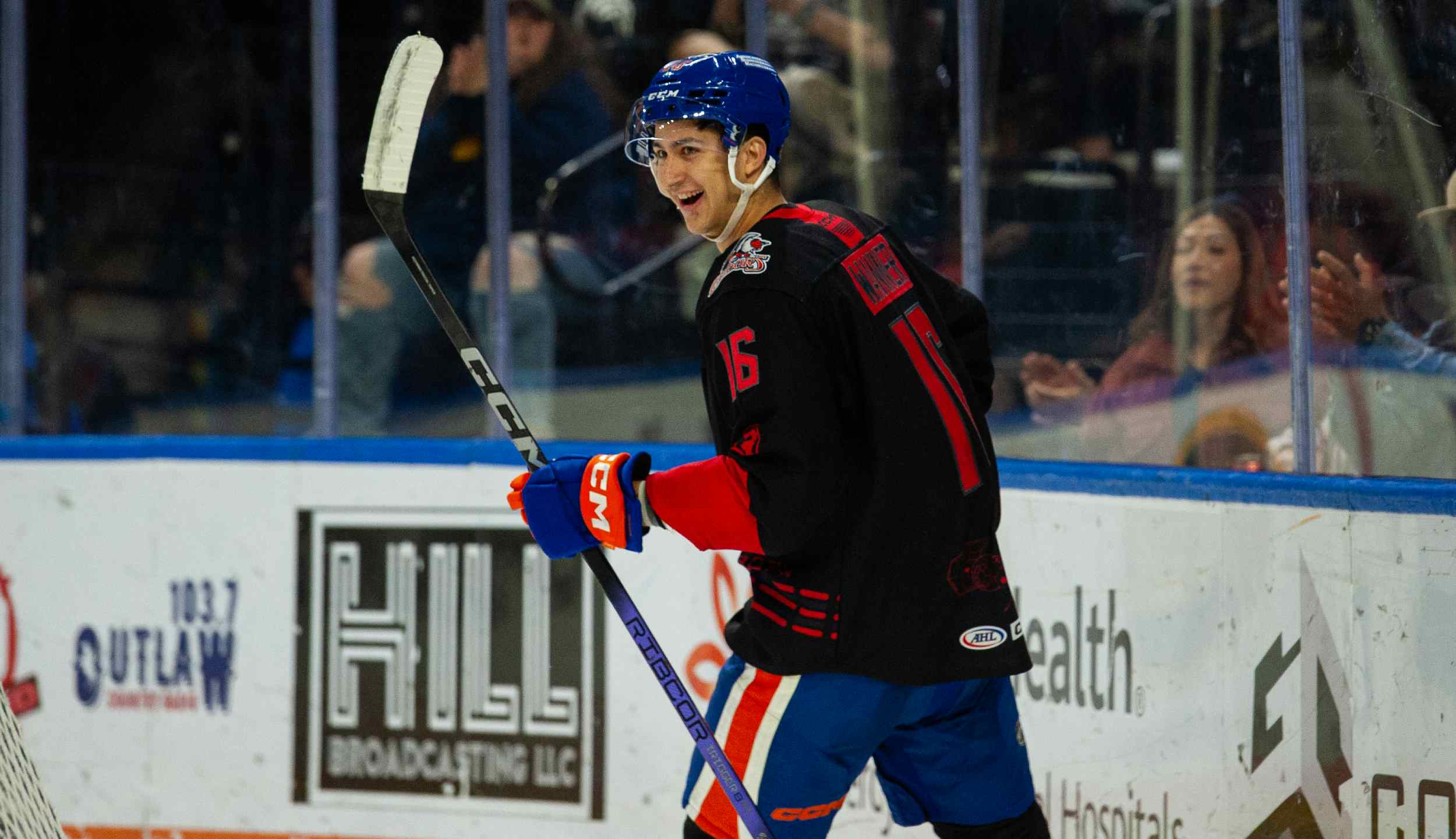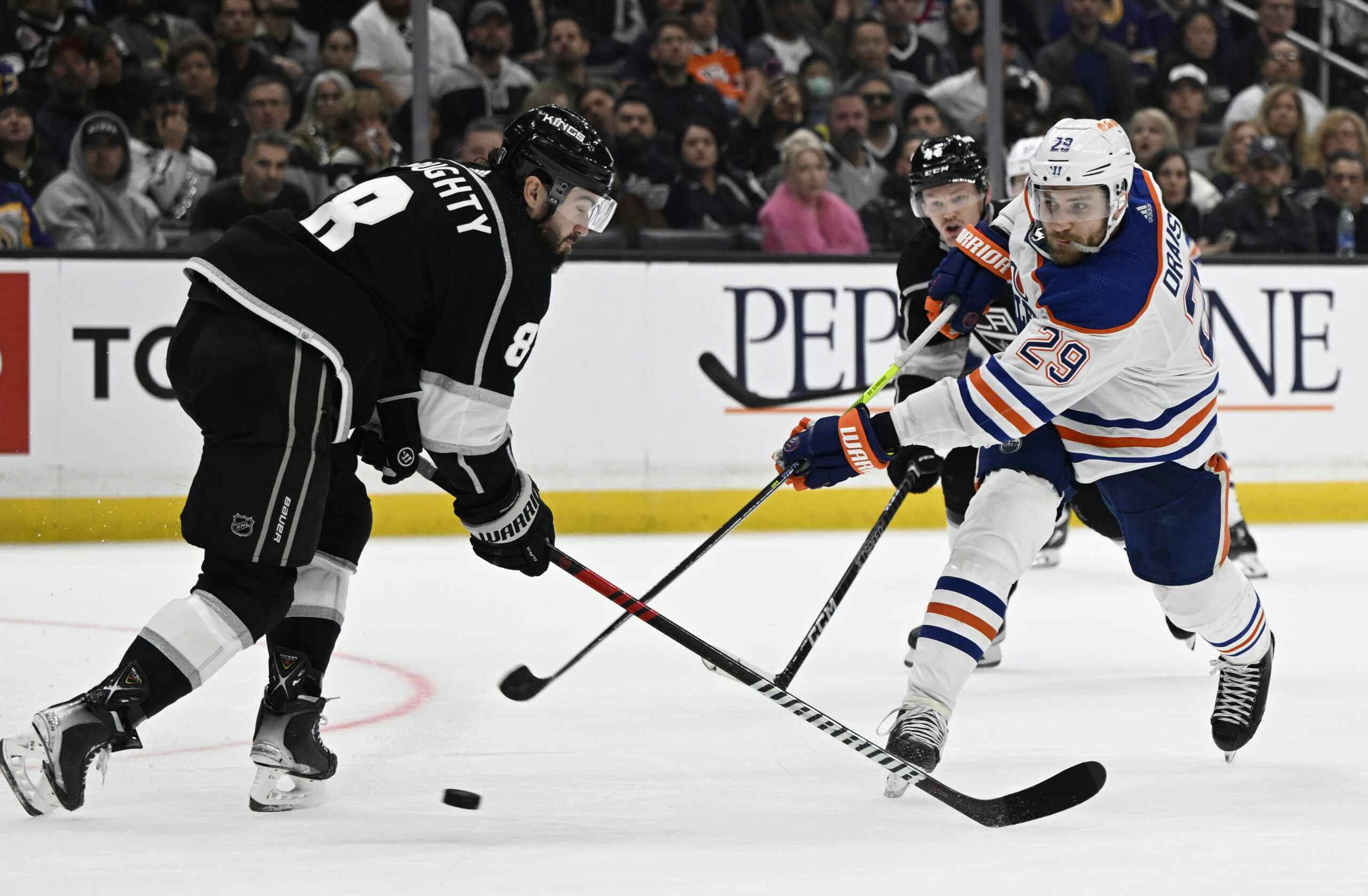SMYTH HOPING TO SHARE HIS EXPERIENCES
By Jason Gregor
10 years ago
Ryan Smyth has played 1,198 regular season games, 95th most in NHL history. If he plays 50 games this year, he’ll be in the top-80. If he plays 54 games, he’ll pass Jari Kurri, and if he dresses for 57 games he’ll pass Kevin Lowe. Smyth has had an outstanding career, that includes one Stanley Cup final appearance, two Olympics (won Gold in 2002) and he won the World Cup in 2004.
Smyth still has a passion for the game and he talked about what he’s looking to accomplish this season.
Smyth joined me last week on my radio show to discuss his career, his role this season and the need to be a leader in a very young dressing room.
Smyth joined me last week on my radio show to discuss his career, his role this season and the need to be a leader in a very young dressing room.
Gregor: Craig MacTavish and Dallas Eakins have both talked about you having a specific role this season. Have you talked to the coach about that role, or how do you envision your role on the team this year?
Smyth: I had a chance to sit down with Dallas right after he got the job. We just sat down and talked about minor things. Nothing was brought up as far as what my role would be. I’ve experienced a lot over the years, even recently. I’m not in the situation that Horcoff was in, in regards to going through seven years of a lot of down periods and then trying to make some headway with the transition with the young guys. I‘m planning to just lead with my experience.
Gregor: How do you do that?
Gregor: How do you do that?
Smyth: That’s a great question. Just from the experiences you gain, from when I first stepped in the NHL, what I experienced. Young kids that come in year one, two, maybe three years into it- I try to relate what was my transition at that stage.
There’s always room for improvement. You can always better yourself. I gravitated towards a lot of the older guys- Doug Weight, Kelly Buchberger and Kevin Lowe and the list goes on and on. You want to try to rub off that way and you want to lead from being in positions that young guys haven’t been in. Whether it be closing in on making the playoffs or being in the playoffs. Hopefully I can do that down the stretch this year.
There’s always room for improvement. You can always better yourself. I gravitated towards a lot of the older guys- Doug Weight, Kelly Buchberger and Kevin Lowe and the list goes on and on. You want to try to rub off that way and you want to lead from being in positions that young guys haven’t been in. Whether it be closing in on making the playoffs or being in the playoffs. Hopefully I can do that down the stretch this year.
Gregor: How do you ensure that the young, skilled forwards put in the proper work ethic that will enhance their skill?
Smyth: There is one thing you can control on a consistent basis and that’s your work ethic. That you can control. Your mind is going to go at times, your body is going to go at times throughout the games, but the one thing you can control is how hard you work. You’ve got to apply that, whether you’re a high skilled guy or not. You’ve got to come and find a way to be a competitor.
I know we touched on this at the end of the year when MacT got on board, and then Scott Howson. At the end of the year, they came in and gave a speech of work ethic. We have a lot of skill, which is great, but we need to apply the work ethic consistently. Hopefully that sort of thing helps me along the way, but I can imply that whether it’s in practice or in games.
Smyth stayed in the NHL for 1200 games because of his work ethic and determination. He doesn’t have the natural skill of the young Oilers, but they could learn a lot from him about being mentally tough. Smyth rarely lost a battle on the boards and in front of the net. Those small battles are the difference between winning and losing games, and when the young Oilers realize that they will be extremely dangerous.
Gregor: Last year, your role changed and your production changed. You were more on the PK than the power play. Will you enter camp with the mind set that your role is mainly going to be PK, and even strength and maybe fill in here and there on the power play?
Smyth: I’m a competitor. You’re an athlete and you want to compete. You want to push guys for jobs, just like guys are going to push me for my job. Ya, I still feel like I’ve got jam. I still feel like I can help out the team whether it’s offensively or defensively. It may be the old cliché, whatever the coach or the team wants from me, I’ll do. But when it comes down to it, when you’re at the stage I am in my career, you want to try to be an impact player at any position you are given. I was asked to play centre three quarters of the year last year and I tried to relish it as best I could. Obviously my point production went down. It was disappointing in that regard. I felt like I had something for the team and tried to fit into that role. If that’s what they want, I’ll deliver as best I can.
PLAYING CENTRE….

Gregor: There was some talk that, potentially, they would try you at centre again this year. Did you talk to Dallas Eakins and, if so, would it be easier if you started from the first day of training camp and pre-season down the middle?
Smyth: If I was told I was playing centre for the whole year, you get your mind set ready for that. I think it was about ten or seven games into this last season, it was, “Okay, we’re going to put you at centre,” however, they didn’t say whether I’d be back to the wing or not. I’m going to tell you, Jay, my strengths are on the wall. I would love to be on the wall, but like I said I want to help out.
Smyth is best suited as a winger, just like Hall. Smyth can take some faceoffs here and there, but Eakins would be better served playing him on the wing. Smyth’s best attribute appear on the boards, not in the slot, so hopefully Eakins plays him on the wing this year.
Gregor: I think it’s important that players recognize their strengths. I think you did that early in your career, and decided you were great on the wall and great in front of the net, where you have to pay the ultimate price. Did somebody tell you that, or was that you looking around and thinking, ‘This is my skill set, this is what I’m going to be good at?’
Smyth: Ya, I observed that when I first came in the league. Dave Andreychuk was one guy who really took a beating in front of the net. My junior career I was a little bit like that, down low, in behind the net, cycling the puck and then I would take it to the net hard. But when you get older, you start to gravitate to players you know and relate to, Holmstrom was my age- and you gravitate towards those types of players.
It’s just instinct now. Take the puck to the net, the puck’s got to go there to score and that’s where you’ve got to try to create havoc and traffic. Then, hopefully, the rest of your bench sees that and says, “That guy wants to go to the net, maybe I should take it to the net.” Sometimes it’s not even saying anything and sometimes it is.
Gregor: What has been the highlight of your career thus far? Winning Olympic Gold in 2002 or the 2006 Cup run?
Smyth: Obviously when you win, it’s kind of tough to take that away. As a kid, you dream of playing in the National Hockey League, winning the Stanley Cup or game seven while playing street hockey. When you go to game seven of the Stanley Cup Finals and lose it, it is really tough to get over, but it was still great. I’d say both of those are highlights. Maybe we can write the script further on down the line here and hopefully get into that Stanley Cup again. Right now, it would be ‘02 and ‘06.
Gregor: With that 2002 team, was it intimidating to go into the locker room and be amongst the best of the best?
Smyth: I’d be lying to you if I said no. I was intimidated at first. The key was Mario (Lemieux). Mario made everyone feel included, whether you were the trainer, whether you were the thirteenth forward or whatever the situation was, or whether you were Chris Pronger. That guy made everybody feel comfortable, same with Stevie Y and Joe Sakic. When you have one of the best players in the game reaching out, it just made me feel at home. What rubbed off after that was 2004 World Cup. That team sort of stayed together. We went on and won the World Cup and I felt more a part of it than I did in ‘02. Maybe because I contributed more offensively and I was out on the more, but at first in 2002 it was intimidating.
In the past few seasons, I don’t think the Oilers dressing room has been as cohesive as it once was. Losing plays a part of that, but I sense this team needs more accountability from player to player. It is time the young kids demand that, but they also need to be able to take constructive criticism from veterans like Smyth. If this team is going to start winning on a regular basis, the players will need to demand more from one another.
Gregor: Then you went to the 2006 Olympics and you guys didn’t have the same success. Ken Hitchcock was on the show last week and he told me he didn’t think Canada had enough team speed. Would you agree?
Smyth: I wouldn’t say we didn’t have enough speed. We had some great speed –Gagne that was fast, Draper that was fast, Doan and all the other superstars like Sakic, Iggy and so on. I think it was just a matter of us maybe being disjointed chemistry wise. We just didn’t get any flow or chemistry. Not to say that we didn’t have our opportunities or our chances to excel, we just didn’t gel quickly enough. That’s the thing with those tournaments- you don’t have time to adjust, you’ve got to do it right away and you have to find the best chemistry possible. We just didn’t find it.
Gregor: Will you take it upon yourself to sit down individually with an Eberle, Hall, Nugent-Hopkins and share some of your experiences. Does it work like that now in the NHL? Are kids receptive to that?
Smyth: I would say for the most part guys are. You don’t get too far in the NHL without being receptive, in my opinion. There are the odd few out there who don’t, but most do. The key is that there is give and take in everything. I want to learn at this age still, I want to learn something I can gravitate to, to better the hockey club and hopefully vice versa.
I love watching the young kids on the ice in practice and just watching how skilled they are. Obviously they do it in games as well and I get to be around it all the time. It’s just a matter of being open minded. If young kids are open minded, who want to win, that’s the bottom line. There’s winning and there’s losing, or what we’ve called misery. We’re all trying to do the same thing; win a Stanley Cup. If we can better our team and communicate, being receptive both ways, then that would be great.
Smyth makes an excellent point here. You are never too old to learn, and he and the other veterans need to want to learn from the kids. They need to take advice as much as give it out.
Gregor: You’re two games away from twelve hundred; you’ll obviously do that very early on this season. Have you thought about if this will be your last year?
Smyth: I’ve always said I’m going off my body, and right now my body feels great. I’ve played the last two and a half years, minus the one game I was sat out; I’ve played them all continuously. My health has been great; I’ve been very blessed for that part. Hopefully I can break out, have a good year and then go from there.
PARTING SHOTS….
Jaromir Jagr (34th) 1,391,
Teemu Selanne (37th, hoping he plays one more year) 1,387
Ray Whitney (67th) 1,261
Shane Doan (77th) 1,246
Jarome Iginla (83rd) 1,232
22 to the 24th to discuss our game, our national sport, our passion. Hockey.
Join myself, George Kingston, Ken Dryden, Pat Laforge, Bob Nicholson, and others to voice your thoughts on where the game is heading. Player Safety, Spring and Summer Hockey, coach and official training, growing the game and sport schools are just a few areas of focus over the three days.
RECENTLY BY JASON GREGOR
Recent articles from Jason Gregor

